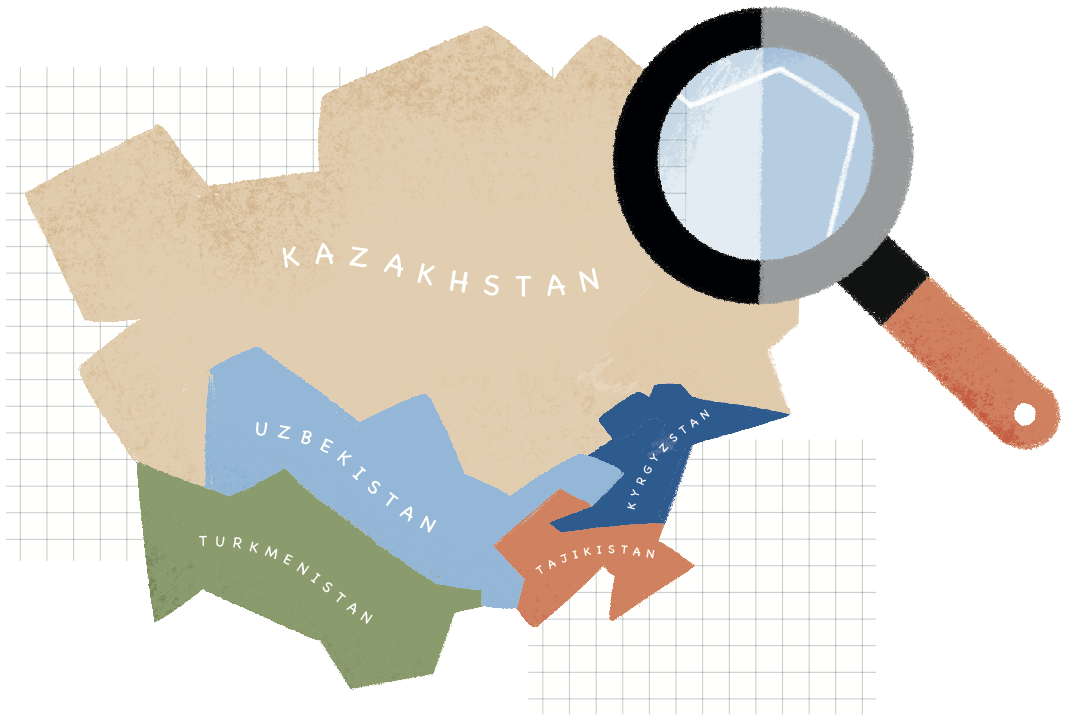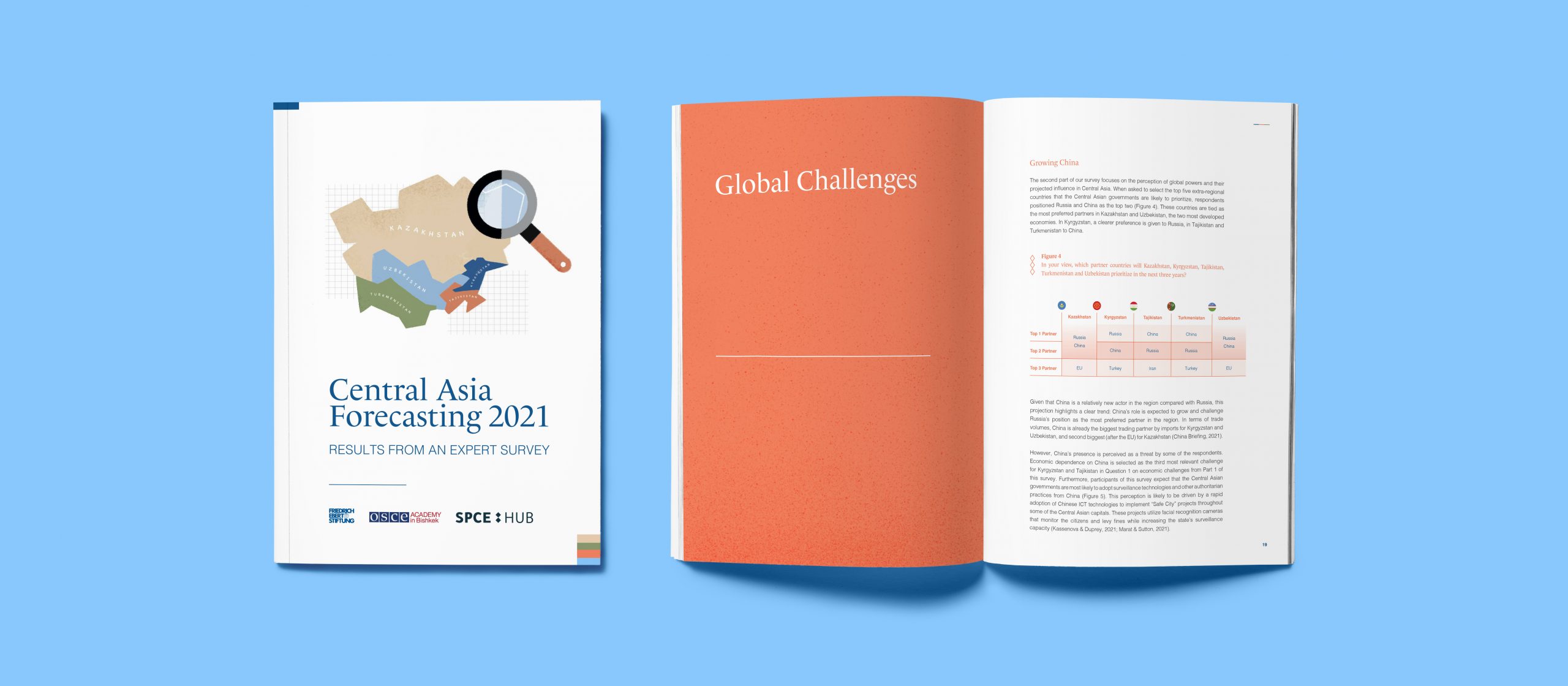
Goals
The ‘Central Asia Forecasting’ study, jointly implemented by the Friedrich Ebert Foundation (FES), the OSCE Academy in Bishkek, and the SPCE Hub, aims to help strengthen EU–Central Asia relations.
The study results are intended to stimulate the debate on the region, foster understanding of the common challenges and opportunities, and encourage data-driven policymaking. It is a pilot project that will be followed by an annual or biennial study to analyse regional trends over time.
The audience that we aim to address with this report comprises the broader public in Europe and Central Asia, civil society representatives, regional experts, researchers and especially EU foreign-policy makers.

Method
For this study, a human-judgement forecasting method was employed in the form of an opinion survey among experts and the informed public on developments in the region in the next three years.
In total, 144 respondents took our 20-minute survey. About half of the respondents are Central Asian citizens and half are from outside the region.
The majority are affiliated with academic institutions and think tanks. This report launch will present the analysis of the survey responses regarding domestic politics and regional affairs, global challenges affecting the region, and EU–Central Asian relations.

